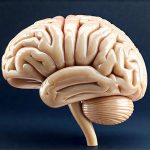Brain fog, that frustrating mental haze that obscures clarity, coupled with persistent sluggishness and unpredictable mood swings, is becoming increasingly common in today’s fast-paced world. These aren’t merely inconveniences; they significantly impact our productivity, relationships, and overall quality of life. Often dismissed as stress or simply “being tired,” these symptoms can frequently be linked to something far more fundamental: the health of our gut. For years, scientists have underestimated the profound connection between our digestive system and our brains – a relationship now understood as the gut-brain axis. This bidirectional communication pathway means that what happens in your gut directly influences your brain, and vice versa.
The emerging field of microbiome research is revealing just how critical a healthy gut is for optimal cognitive function and emotional wellbeing. The trillions of microorganisms residing within our digestive tract—the gut microbiota—play an essential role in producing neurotransmitters (like serotonin, dopamine, and GABA), regulating inflammation, and even influencing the immune system. An imbalance in these gut bacteria, known as dysbiosis, can disrupt these processes, leading to a cascade of effects that manifest as brain fog, fatigue, and mood instability. Therefore, focusing on nourishing our gut through dietary choices isn’t just about digestive health; it’s about supporting optimal brain function and emotional resilience. You may also want to explore how to rotate foods to further support gut health.
The Gut-Brain Connection: A Deeper Dive
The gut-brain axis isn’t a metaphorical connection; it’s a complex network involving multiple pathways. One key pathway is the vagus nerve, often referred to as the “wandering nerve,” which directly links the brainstem to many of the organs in your digestive system. Signals travel both ways along this nerve, allowing for constant communication between gut and brain. When the gut microbiome is compromised, it can send distress signals up the vagus nerve, impacting brain function and emotional state. Another important pathway involves the production of neurotransmitters. Did you know that approximately 90% of serotonin—often called the “happy hormone”—is produced in the gut? This highlights just how reliant our brains are on a healthy gut ecosystem for proper chemical balance. It’s also helpful to understand portion control strategies to support overall digestive wellbeing.
Furthermore, inflammation plays a significant role. An unhealthy gut often leads to increased intestinal permeability, commonly known as “leaky gut.” This allows undigested food particles and toxins to enter the bloodstream, triggering an immune response and chronic inflammation throughout the body, including the brain. Chronic inflammation is linked to numerous neurological conditions and can contribute significantly to brain fog and cognitive decline. The gut microbiota also influences the immune system, which in turn affects brain health. A dysbiotic gut can lead to immune dysregulation, increasing susceptibility to inflammation and impacting neuroinflammation—inflammation within the brain itself. If you’re sensitive to certain foods, identifying trigger foods during times of stress can be really helpful.
Finally, short-chain fatty acids (SCFAs) are produced when gut bacteria ferment dietary fiber. These SCFAs have numerous beneficial effects on both gut and brain health, including reducing inflammation, improving gut barrier function, and even directly nourishing brain cells. A diet lacking in fiber can therefore starve your gut bacteria and reduce SCFA production, impacting cognitive function and mood.
Food as Medicine: Nourishing Your Gut Microbiome
The good news is that you have significant control over your gut health through dietary choices. The goal isn’t necessarily to eliminate foods but rather to focus on incorporating gut-supportive options. One of the most impactful changes you can make is increasing your intake of fiber-rich foods. Fiber acts as a prebiotic, meaning it provides nourishment for beneficial gut bacteria, encouraging their growth and diversity. Excellent sources include:
- Fruits (berries, apples, bananas)
- Vegetables (broccoli, spinach, carrots)
- Legumes (beans, lentils, chickpeas)
- Whole grains (oats, quinoa, brown rice)
Beyond fiber, fermented foods are also incredibly beneficial. These foods naturally contain probiotics – live microorganisms that can help repopulate your gut with beneficial bacteria. Examples include:
- Yogurt (with live and active cultures)
- Kefir
- Sauerkraut
- Kimchi
- Kombucha
It’s important to choose fermented foods without added sugar, as excessive sugar intake can negatively impact the gut microbiome. Additionally, minimizing processed foods, refined sugars, and unhealthy fats is crucial. These foods tend to promote the growth of harmful bacteria and contribute to inflammation. Polyphenol-rich foods like berries, dark chocolate (in moderation!), and green tea are also beneficial as they feed specific beneficial bacteria and have anti-inflammatory properties. Understanding food pairing can further aid digestion.
Boosting Brainpower with Specific Foods
Certain foods stand out for their ability to directly support brain function alongside gut health. Omega-3 fatty acids, found in fatty fish (salmon, mackerel, sardines), flaxseeds, and chia seeds, are essential for brain cell structure and function. They also have anti-inflammatory properties, which can help protect the brain from damage. Incorporating these foods into your diet regularly can improve cognitive performance and mood stability. Furthermore, choline-rich foods like eggs and liver (if you enjoy it!) contribute to the production of acetylcholine, a neurotransmitter vital for memory and learning.
Magnesium-rich foods such as leafy green vegetables, nuts, and seeds are also incredibly important. Magnesium plays a role in over 300 enzymatic reactions in the body, including those involved in nerve transmission and muscle function. Deficiencies can contribute to fatigue, irritability, and difficulty concentrating. Don’t underestimate the power of hydration either! Water is essential for optimal brain function and helps flush out toxins that can contribute to brain fog. Aim for at least eight glasses of water per day. Meal timing is another factor to consider for optimal digestive health.
Dietary Strategies for Mood Stabilization
Mood swings often stem from imbalances in neurotransmitters, which, as we’ve discussed, are heavily influenced by gut health. Tryptophan, an amino acid found in foods like turkey, chicken, and nuts, is a precursor to serotonin. Consuming tryptophan-rich foods can help boost serotonin levels naturally. However, it’s important to combine these foods with carbohydrates, which facilitate tryptophan’s entry into the brain.
Another key strategy is maintaining stable blood sugar levels. Rapid fluctuations in blood sugar can lead to mood swings and energy crashes. Avoid sugary drinks and processed snacks, opting instead for complex carbohydrates paired with protein and healthy fats. For example, an apple with almond butter provides sustained energy and helps stabilize blood sugar. Finally, incorporating foods rich in B vitamins is crucial for nerve function and neurotransmitter production. Good sources include whole grains, leafy green vegetables, and lean meats. You can also explore warming herbs to help soothe digestive discomfort.
Gradual Implementation & Personalized Approaches
Making significant dietary changes can feel overwhelming. The key is to start small and make gradual adjustments. Don’t try to overhaul your entire diet overnight; instead, focus on adding one or two gut-supportive foods each week. Begin by swapping out refined grains for whole grains, incorporating a fermented food into your daily routine, or increasing your fiber intake gradually. Pay attention to how different foods affect you specifically. Everyone’s gut microbiome is unique, and what works well for one person may not work for another.
Consider keeping a food journal to track your symptoms and identify any potential trigger foods. If you suspect you have underlying digestive issues or severe dysbiosis, consulting with a registered dietitian or healthcare professional specializing in gut health can provide personalized guidance and support. They can help you develop a tailored dietary plan based on your individual needs and circumstances. Remember that supporting your gut is an ongoing process—a commitment to nourishing your body from the inside out for optimal brain function, sustained energy, and emotional wellbeing.


















